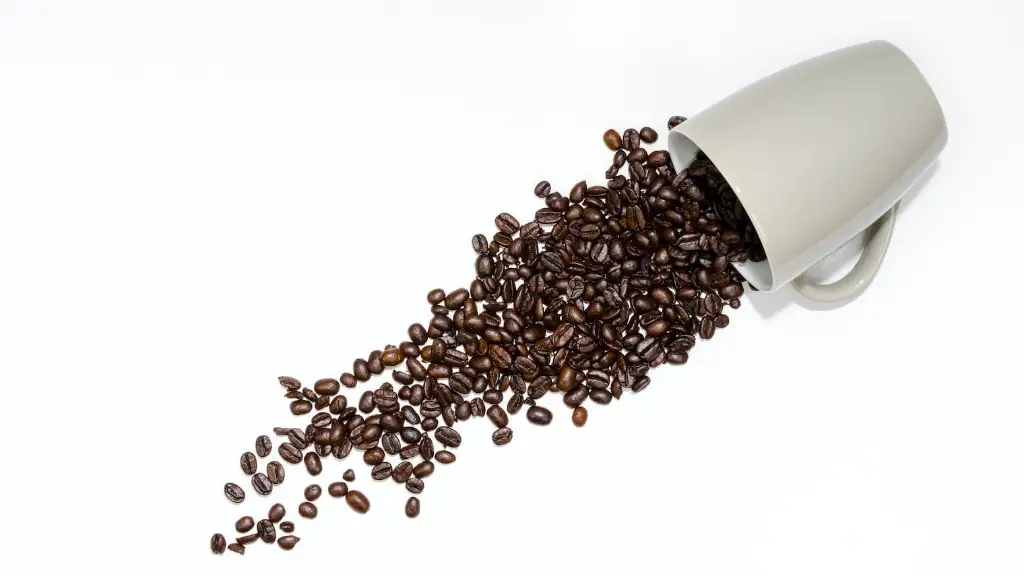How caffeine affects an upset stomach
Coffee can prove to be a double-edged sword when it comes to dealing with an upset stomach. On the one hand, coffee can be soothing to an aggravated stomach because of its warm, comforting properties. At the same time, however, coffee also contains caffeine, which can act as a stimulant that can irritate an already inflamed stomach.
Caffeine has been known to stimulate the stomach’s natural production of hydrochloric acid, leading to an increase in the number of acid pumps. This can further aggravate the already inflamed stomach and contribute to nausea, burning sensations and other stomach-related discomfort.
In addition, coffee also contains tannins and chlorogenic acid, both of which can trigger GERD, a condition characterized by stomach acid reflux. GERD is commonly caused by tension in the muscles of the stomach and esophagus, which can be worsened by coffee.
At the same time, however, coffee also contains phytochemicals and antioxidants that can help to reduce inflammation and sooth an upset stomach. Coffee can also help to stimulate the digestive system, which in turn may help to facilitate the removal of waste from the body and reduce gastrointestinal distress.
Despite the potential benefits of coffee for certain digestive issues, it is always best to consult with a medical professional prior to consuming coffee on an upset stomach. Each person has a unique set of biochemistry and body type that can respond differently to coffee and its effects, making it important to have a skilled health care provider evaluate your individual needs.
Should you drink coffee on an upset stomach?
Generally speaking, it is best to avoid drinking coffee on an upset stomach. Coffee can often be too stimulating to an already inflamed stomach and can actually aggravate the existing discomfort. It is best to try gentle liquids such as broth and herbal teas, which can help to soothe the stomach and serve as a gentle form of nourishment.
As noted earlier, coffee does contain beneficial compounds that can help to reduce inflammation, but it can also irritate an already aggravated stomach. The decision to drink coffee on an upset stomach should be taken with caution and with the approval of a healthcare professional, depending on the severity of the stomach problem.
It is important to note that everyone’s individual body type, biochemistry and medical history will determine how coffee is best tolerated. For those with stomach problems, a lower caffeine content may be more suitable, as too much caffeine can aggravate the situation. Generally, decaffeinated coffee is the safest option for those with an upset stomach.
Healthier alternatives to coffee on an upset stomach
For those with an upset stomach, drinking between 2 and 4 cups (500-1000 milliliters) of caffeine-free, herbal teas per day can help to soothe the stomach and make sure the body gets its needed hydration.
Anise, ginger and peppermint teas are particularly beneficial as they have calming properties. There are also a variety of probiotics and enzyme supplements that can help to further soothe an irritated digestive system.
Fiber-rich vegetables and fruits consumed in soups or smoothies are also beneficial for an upset stomach. This is because fiber encourages normal bowel movements, which can help to reduce discomfort and expel any toxins from the body.
That said, some people may find that coffee is better tolerated for their individual stomach problems. For example, those with GERD may find that a light cup of coffee is better tolerated than a strong one, as it can help to reduce the severity of the symptoms.
Precautions to consider when drinking coffee on an upset stomach
If you decide to drink coffee on an upset stomach, here are some precautions to take:
- Choose high quality beans – this ensures that the coffee has fewer toxins and more helpful antioxidants.
- Grind fresh beans and avoid pre-grounded options.
- Go for a lighter roast – light roasts contain more acids, which can be beneficial for those with an upset stomach.
- Choose a low-acid coffee – some coffees are naturally low in acidity and can be better tolerated for those with an upset stomach.
Ways to prevent an upset stomach from oncoming
Prevention is preferable to cure and being mindful of certain lifestyle habits can help to reduce the incidence of an upset stomach.
Here are a few tips to help prevent an upset stomach:
- Eat a fiber-rich diet – fiber encourages normal bowel movements, which in turn helps to reduce the severity of digestive problems.
- Eat smaller meals more frequently – this helps to keep your stomach from becoming too full and can aid digestion.
- Chew your food properly – this helps the body to properly digest and absorb the nutrients from food.
- Stay hydrated – drinking enough water on a regular basis helps to keep the body healthy and functioning optimally.
Can coffee help indigestion?
Although the role of coffee in aiding indigestion is largely debated, some studies suggest that coffee can help to stimulate the digestive system and reduce indigestion. Coffee also contains compounds that can help to reduce inflammation, as well as phytochemicals and antioxidants, which may also help to soothe the stomach.
Coffee can have different effects on each individual, and it should be noted that coffee may worsen existing indigestion in some cases. Therefore, it is always best to consult with a medical professional prior to drinking coffee, especially if you are dealing with regular indigestion or have a pre-existing digestive condition.
Conclusion
Coffee can be both beneficial and detrimental when it comes to an upset stomach, depending on the individual case. Generally speaking, it is best to avoid drinking coffee on an upset stomach as it can further irritate an already inflamed stomach. If you decide to drink coffee on an upset stomach, it is best to opt for a low-caffeine blend and consult with your healthcare provider.




